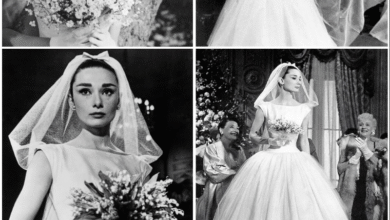Johnny Depp’s Mentors Owe Him Big Time—Here’s Why They Should Be Grateful!
OPINION: This article may contain commentary which reflects the author's opinion.
Johnny Depp, the enigmatic and often unconventional actor known for his iconic roles like Captain Jack Sparrow in Pirates of the Caribbean, has enjoyed a career filled with success, controversy, and critical acclaim. However, the statement that “Johnny Depp’s mentors owe him a lifetime of gratitude” invites us to delve deeper into his professional relationships, particularly with those who shaped his early career. Through an exploration of his mentorships, we can assess whether Depp’s journey to stardom has, in turn, brought substantial benefits to the mentors who guided him.
Background and Context
Born on June 9, 1963, in Owensboro, Kentucky, Johnny Depp’s career began in music with his band, The Kids, before transitioning to acting in the early 1980s. This shift from music to film was heavily influenced by mentorship, notably from actor Nicolas Cage, who would play a crucial role in launching Depp’s acting career.
While Depp’s career is filled with notable roles in films ranging from Edward Scissorhands to The Tourist, it was his early breakthrough that stands as a testament to the power of mentorship. Cage’s encouragement and guidance led Depp to his first major film role in A Nightmare on Elm Street (1984), setting him on a path that would later make him a household name. The question remains: do Depp’s mentors owe him gratitude for his success, or has the flow of benefit only traveled in one direction?
Identifying Johnny Depp’s Mentors
Several figures in Depp’s early career played mentoring roles, but Nicolas Cage stands out as the most significant. In the 1980s, when Depp was struggling financially and uncertain about his future, Cage introduced him to his agent. This pivotal move eventually led Depp to Hollywood and his first major role in a horror classic. Depp himself has expressed deep gratitude toward Cage for this mentorship, admitting in interviews that he “ended up acting by accident” largely due to Cage’s guidance.
Beyond Cage, there are a few other figures, such as Pennie Greenaway, who provided mentorship during Depp’s time at CalArts, but their impact on his career is less documented. Depp has also cited his parents, Betty Sue Depp and John Christopher Depp, as early influences, particularly in terms of fostering his love for art and music. However, these early familial influences are not typically considered professional mentors in the traditional sense, as they did not directly guide him through Hollywood’s industry-specific challenges.
The Mentorship Dynamic: Cage’s Influence
The relationship between Depp and Cage is widely acknowledged in public records and interviews. Cage not only encouraged Depp to consider acting but also introduced him to his agent, helping to launch a career that would span decades. Depp has frequently spoken about how crucial Cage’s mentorship was in his early days, noting that without Cage’s support, he might not have found his way into the acting world at all.
In a memorable interview, Depp recalled how he was filling out job applications when Cage suggested he meet with his agent, a moment that would alter the trajectory of his life. This direct intervention was the spark that ignited Depp’s acting career, and Depp has been vocal about the debt of gratitude he owes to Cage.
However, despite Depp’s success, there is no public evidence suggesting that Cage or any other mentors feel they owe him gratitude in return. Instead, the narrative surrounding their relationship is focused on Cage’s generous mentorship. There is no indication that Depp’s rise to fame has directly benefited Cage’s career or reputation in a way that would compel him to express gratitude toward Depp.
Indirect Benefits to Mentors?
While there is no direct acknowledgment from Depp’s mentors that they owe him anything, it’s worth considering whether his success has indirectly benefited them. In the entertainment industry, mentoring a talented actor can be seen as a sign of insight and an ability to recognize raw talent. Cage’s early encouragement of Depp could have enhanced his reputation within Hollywood as someone who could spot potential stars—a reputation that could open doors for him professionally. However, this remains speculative, as there is no direct evidence supporting the idea that Cage’s mentorship of Depp led to significant career benefits for Cage himself.
Additionally, Depp’s success may have led to indirect collaborations or associations, but these have not been widely documented. Both actors have had long and varied careers, but their paths have diverged significantly since Depp’s early breakthrough. Cage has focused on projects like National Treasure and The Unbearable Weight of Massive Talent, while Depp’s career has taken a different trajectory, especially with his later roles in Pirates of the Caribbean and various collaborations with director Tim Burton.
Conclusion: The Flow of Gratitude
Based on the available information, the assertion that Johnny Depp’s mentors owe him a lifetime of gratitude does not hold up. While Depp has undeniably benefited from the mentorship of Nicolas Cage and others, there is no direct evidence suggesting that Cage or any of Depp’s mentors feel indebted to him. Instead, the narrative around their relationship highlights Depp’s gratitude for Cage’s early guidance, and there is no indication that this has translated into tangible benefits for Cage.
Depp’s mentors, particularly Cage, played a critical role in launching his career, but the benefits seem to flow in one direction—from Cage to Depp, rather than the other way around. While it’s true that mentoring a future star can enhance an individual’s reputation, there is no concrete evidence to suggest that Depp’s success has directly enhanced the careers of those who helped him along the way. Thus, while Depp may owe much of his career to the mentorship he received, the idea that his mentors owe him anything in return seems more like an oversimplification than a reflection of reality.



